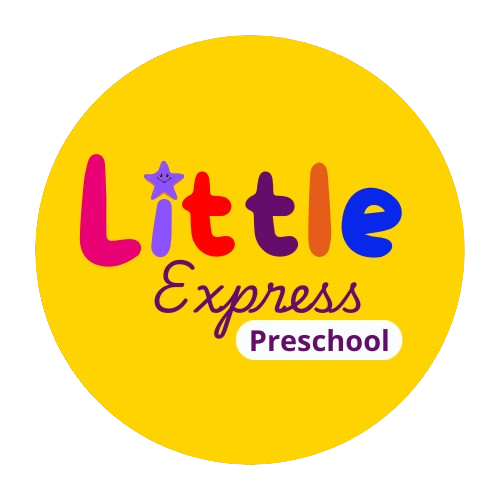Emotional development in preschool is just as important as academic learning. Young children are discovering their feelings and learning how to express them. Our preschool is committed to nurturing emotional intelligence, helping children grow into confident and happy individuals. In this blog, we will discuss how Little Express supports emotional development, focusing on creating a caring environment.
Focus Keyword: Emotional development in preschool
1. A Safe and Nurturing Environment
Creating a safe space is essential for emotional development in preschool. At Little Express, we strive to make every child feel secure and valued. Our teachers greet each child warmly and create a welcoming atmosphere. This helps children feel comfortable expressing their emotions without fear of judgment.
When children feel safe, they are more likely to open up about their feelings. They learn to talk about their emotions and understand them better. This supportive environment is vital for their emotional development in preschool.

2. Guided Emotional Expression
At Little Express, we teach children how to express their emotions in healthy ways. Our teachers use stories, role-playing, and group activities to help children identify their feelings. For example, when children read stories, they discuss how characters might feel in different situations. This encourages children to connect their emotions to real-life experiences.
We also encourage children to use words to express their feelings instead of acting out. When a child feels angry or sad, our teachers guide them in talking about it. This practice is crucial for emotional development in preschool, as it helps children learn to manage their emotions effectively.
3. Building Strong Relationships
Friendships play a significant role in emotional development in preschool. At Little Express, we promote cooperative play and teamwork. Children work together on projects and play games that require sharing and taking turns. These activities help children develop social skills and understand empathy.
When children learn to appreciate their friends’ feelings, they build strong relationships. Our teachers encourage kindness and support among peers, helping children develop emotional bonds that are essential for their growth.
Building relationships in preschool is a crucial part of early childhood development. Children learn how to interact, share, and communicate with their peers, which helps them form friendships and develop social skills. Preschool provides a safe space for children to build trust and empathy as they engage in group activities, play, and problem-solving.
4. Encouraging Independence
Helping children become independent is an essential part of emotional development in preschool. At Little Express, we provide opportunities for children to make choices throughout the day. Whether it’s selecting a book to read or choosing an activity, these decisions empower children and build their self-esteem.
When children feel capable of making choices, they gain confidence in their abilities. This independence fosters a sense of control over their emotions, allowing them to handle challenges more effectively. Teachers play a key role in guiding children, helping them understand emotions and teaching them the importance of kindness and cooperation. These early relationships lay the foundation for healthy social interactions as they grow older.
5. Parental Involvement
We believe that parental involvement is vital for emotional development in preschool. Little Express encourages parents to engage in their child’s learning process. We host regular parent-teacher meetings and workshops where parents can learn how to support their child’s emotional growth at home.
By working together, parents and teachers can provide consistent guidance and reinforcement, helping children develop emotional resilience and strength.
By staying connected with teachers and understanding the curriculum, parents can reinforce learning at home and address any concerns early on. Additionally, when parents model positive attitudes toward education, children are more likely to develop a love for learning.
Conclusion
Little Express Preschool is dedicated to supporting emotional development in preschool. By creating a safe environment, guiding emotional expression, building relationships, encouraging independence, and involving parents, we help children develop the skills they need to navigate their emotions. This commitment to emotional development prepares children for future success in school and life.


